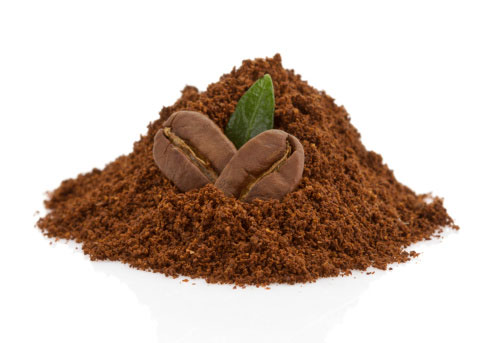Disposing of Coffee Grounds Down the Sink: Possible or Not? - Considerations to Keep in Mind
Disposing of Coffee Grounds Down the Sink: Possible or Not? - Considerations to Keep in Mind
Blog Article
What're your opinions about Should You Put Coffee Grounds Down the Sink??

If you're a passionate coffee drinker, you could be questioning the very best way to take care of your coffee premises. While it may appear convenient to clean them down the sink, this practice can bring about a number of issues for both your plumbing and the atmosphere. In this article, we'll check out whether it's risk-free to put coffee grounds down the sink and go over alternate disposal approaches to consider.
Threats of Putting Coffee Grounds Down the Sink
Plumbing Issues
Among the primary interest in disposing of coffee grounds down the sink is the danger of clogging your pipes. Coffee premises don't dissolve in water and can gather over time, developing a dense sludge that can block drains and result in costly plumbing repair services.
Environmental Impact
Beyond the possible damages to your plumbing, putting coffee grounds down the sink can additionally damage the atmosphere. When washed right into the sewage system, coffee premises can add to blockages in sewage system lines and treatment centers. Furthermore, the high focus of organic matter in coffee premises can deplete oxygen degrees in waterways, adversely impacting water life.
Alternatives to Disposing of Coffee Grounds
Composting
One environmentally friendly alternative for taking care of coffee grounds is to compost them. Coffee grounds are abundant in nitrogen, making them an excellent enhancement to compost heap or bins. As they decompose, they add nutrients to the soil, enhancing its fertility and appearance.
Garbage Disposal
If you don't have a composting arrangement, one more alternative is to just toss your coffee premises in the garbage. Make sure to seal them in a compostable bag or container to prevent smells and leakage. While this approach does not supply the same environmental benefits as composting, it's a risk-free and practical method to deal with coffee grounds.
Tips for Proper Disposal
Use a Sink Strainer
To avoid coffee premises from entering your sink's drainpipe in the first place, consider utilizing a sink strainer. These affordable tools trap strong fragments, including coffee grounds, stopping them from causing obstructions.
Routine Maintenance
No matter how you select to dispose of your coffee grounds, it's vital to maintain your plumbing frequently. Set up regular drainpipe cleansings to eliminate any type of accumulation and make certain that your pipelines remain clear and free-flowing.
Conclusion
While it may be tempting to clean coffee premises down the sink for comfort, doing so can have significant repercussions for your plumbing and the atmosphere. Instead, think about composting your coffee premises or taking care of them in the garbage. By adopting accountable disposal techniques, you can appreciate your coffee guilt-free while reducing your environmental footprint.
Coffee Grounds Down The Drain: Are They OK?
Can Coffee Grounds Go Down the Sink?
You may be thinking, “But I pour them down the sink drain every day and I’ve never had a clogged drain!” You see, coffee grounds come from coffee beans, which are virtually rock hard by the time they’re ground and brewed. You certainly wouldn’t want to grind up the pit from a peach, apricot, or nectarine that is about just as hard because they wouldn’t break down like other foods, and it’s the same with coffee beans!
If you usually grind coffee beans in the garbage disposal because it seems the cleanest and convenient, we don’t fault you for that. And anyone who has ever had to clean up the trash with spilled coffee grounds after a dog got into it would understand the rationale. Unfortunately, coffee grounds do not break down in water, so instead of grinding up and washing away as normal foods do in a garbage disposal, they clump together and as time goes by, the grounds can form a clump and pack the drain until it develops a clog.
What to Do With Coffee Grounds
So, what do you do with coffee grounds if you can't put them down the drain? You could of course just throw them in the garbage, but we encourage you to give these practical uses for them a try!
Since coffee grounds contain key minerals for plant growth, you can use them to fertilize your garden. Coffee grounds not only fertilize gardens because they are mineral-rich, but they are also great at absorbing contaminants in the soil, particularly heavy metals. Coffee grounds are said to attract worms, which help gardens flourish. You can use coffee grounds as fertilizer by sprinkling them around your plants. You can compost your coffee grounds and use them at a later time. Coffee grounds are great insect repellents when you place them in bowls or sprinkle them around the areas you want to repel insects. To remove fleas from your dog or cat, simply shampoo your pet then rub coffee grounds throughout their fur. Rinse them off and dry as usual. Like baking soda, used coffee grounds can eliminate odors. You can place them in a bowl in the fridge and let them do the work! Mix coffee grounds with coconut oil for a wonderful face or body scrub, or to reduce the appearance of cellulite. https://www.wintershomeservices.com/blog/2019/august/coffee-grounds-down-the-drain-are-they-ok-/

Do you like reading about Should You Put Coffee Grounds Down the Sink?? Try leaving feedback directly below. We would be glad to find out your opinion about this blog. Hoping that you come back again soon. Those who enjoyed reading our blog post plz don't forget to share it. We value reading our article about Is it safe to dispose of coffee grounds down the sink?.
Call Us Now Report this page